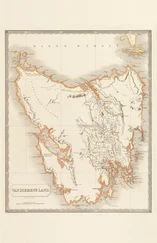Joshua Giddings - The Exiles of Florida
Здесь есть возможность читать онлайн «Joshua Giddings - The Exiles of Florida» — ознакомительный отрывок электронной книги совершенно бесплатно, а после прочтения отрывка купить полную версию. В некоторых случаях можно слушать аудио, скачать через торрент в формате fb2 и присутствует краткое содержание. Жанр: foreign_antique, foreign_prose, на английском языке. Описание произведения, (предисловие) а так же отзывы посетителей доступны на портале библиотеки ЛибКат.
- Название:The Exiles of Florida
- Автор:
- Жанр:
- Год:неизвестен
- ISBN:нет данных
- Рейтинг книги:5 / 5. Голосов: 1
-
Избранное:Добавить в избранное
- Отзывы:
-
Ваша оценка:
- 100
- 1
- 2
- 3
- 4
- 5
The Exiles of Florida: краткое содержание, описание и аннотация
Предлагаем к чтению аннотацию, описание, краткое содержание или предисловие (зависит от того, что написал сам автор книги «The Exiles of Florida»). Если вы не нашли необходимую информацию о книге — напишите в комментариях, мы постараемся отыскать её.
The Exiles of Florida — читать онлайн ознакомительный отрывок
Ниже представлен текст книги, разбитый по страницам. Система сохранения места последней прочитанной страницы, позволяет с удобством читать онлайн бесплатно книгу «The Exiles of Florida», без необходимости каждый раз заново искать на чём Вы остановились. Поставьте закладку, и сможете в любой момент перейти на страницу, на которой закончили чтение.
Интервал:
Закладка:
After the battle of Suwanee, General Jackson returned to St. Marks, being unable to follow the Indians and Exiles into the more southern portions of Florida. While at St. Marks, he ordered a court-martial, constituting General Gaines president, in order to try Arbuthnot and Ambrister. The history of their trial and execution is familiar to the reader. The first and principal charge against Ambrister was, that he excited the negroes and Indians to commit murder upon the people of the United States; the second charge was for supplying them with arms. On these charges he was convicted and executed. It was also alleged, that he was present at the battle of Suwanee; and some writers say he commanded the Exiles on that occasion, and had previously taught them military discipline.
In May, General Jackson issued an Address to his troops, declaring the war at an end; and wrote the Executive, asking permission to retire to his home in Nashville, there being no further use for his services in the field.
The Exiles now returned to their homes. They had full leisure to contemplate their situation. Many of their best men had fallen. Nearly the entire population residing upon the Appalachicola River had been massacred. Their villages at Mickasukie and Suwanee had been burned; and it is probable that nearly one half of their entire population had been sacrificed, in this first war waged by the United States for the murder and recapture of fugitive slaves.
The invasion of Florida by General Jackson was condemned by many public men, and was approved by others with equal ability. Even the then Secretary of State, John Quincy Adams, in his correspondence with Don Onis, the Spanish Minister, defended the invasion with great ability. But in the discussions of this subject, we find no allusion to the massacre at “Blount’s Fort;” 47 47 Various names have been given this Fort. The author, having heretofore adopted that of “Blount’s Fort,” prefers to continue that name. It was equally known, however, as the “Negro Fort,” and as “Fort Nichols.”
that appears to have been regarded as a subject of too delicate a nature for public scrutiny. In the alcoves of our National Library, we find many volumes of documents touching this war, embracing some thousands of pages, in which there is the strongest censure expressed against the Seminoles for provoking the war, and condemnation for the barbarous manner in which they conducted it; but we search them in vain to find any condemnation, by American statesmen, of the object for which the war was commenced, or the unprovoked and worse than savage massacre which marked its beginning.
CHAPTER V.
FURTHER EFFORTS OF THE GOVERNMENT TO RESTORE EXILES TO SERVITUDE
Effects of the War – Situation of the Exiles – Servility of Northern Statesmen – Determination of Southern Slaveholders – The purchase of Florida demanded – Causes which led to it – Territory obtained – Authorities of Georgia demand a new Treaty with Creeks – Mr. Calhoun Secretary of War – His efforts in favor of the Claimants – Georgia appoints Commissioners – They attempt to dictate those appointed by the United States – Correspondence – Mr. Calhoun dissatisfied with those whom he had appointed – They resign – New Commissioners appointed – Their relation to the subject – Difficulties – Indian Talks – Treaty effected – Agreement – Assignment of Fugitive Slaves to United States in trust for the Creek Indians – Claims adjudicated – Slaveholders claim the funds belonging to the Creek Indians.
The first Seminole war, like most other wars, was attended with great sacrifice of blood and treasure. It had corrupted the morals of the nation; but the Administration had entirely failed to attain the objects for which it had been commenced. Not ten slaves had been captured, if we except those who were wounded and taken prisoners at “Blount’s Fort,” one half of whom had died of their wounds. Under such circumstances, the Government could not, with propriety, condescend to make a treaty with a community of black men, whose ancestors had fled from slavery. Such act would, in the opinion of slaveholders, have compromised the dignity of the Slaveholding States; nor could they treat with the Seminole Indians as a separate tribe, for the Administration was endeavoring to hold the Creeks responsible for the acts of the Seminoles, who, the slaveholders insisted, were a part of the Creek tribe. The army was therefore withdrawn from Florida, without any treaty whatever. But the act of withdrawing the army and permitting the Exiles to remain in a state of freedom and independence, constituted an acknowledgment of the inability of our Government to reënslave them, although it was constantly asserted that they were a degraded race, incapable of supporting themselves if set at liberty.
In looking over the official reports of our officers, the action of Congress, and the tone of the public press, we are forcibly impressed with the constant and unceasing efforts to hide from the popular mind of the nation the real questions involved in this war. Nor can we account for it upon any other hypothesis, than the popularity of President Monroe’s Administration. The old Federal party had ceased to exist. They had been the only party opposed to Mr. Monroe; and no member of Congress appears to have possessed the requisite independence, information and ability, to take a position distinctly against his policy.
Soon as our army was withdrawn from Florida, peace was of course restored, and things remained as they were prior to the invasion under Colonel Clinch, in 1816. The Exiles were again left in peace, as they had been prior to the commencement of the war. Nothing had been gained to the United States by the vast expenditure of blood and treasure which attended the prosecution of hostilities. The Exiles had maintained their liberty for at least a century, and now they had set the American Government at defiance. These considerations operated upon the minds of the slave population of Georgia and Alabama, who now became more anxious to join them; and their numbers were thus increased almost daily by slaves from those States.
From 1790, our Government had endeavored to reënslave these people. No Northern statesmen objected to the policy; while those of the South had come to believe that, although the Union may not have been formed solely for the purpose of capturing slaves, yet that duty was regarded by them as one of its most important objects. It had now become evident that no military force could pursue them into their retired fastnesses, or seek them out when scattered among the hommocks, the swamps and everglades of that singular country.
Southern statesmen now turned their attention to the purchase of Florida. That would deprive the Indians and Exiles of the nominal protection of Spanish laws, and would bring them under the jurisdiction of the United States; they therefore addressed themselves to that policy with renewed assiduity. Recent events had convinced the authorities of Spain that it was impossible for them to maintain the dignity of the Spanish crown, or the sanctity of her soil from invasion against an American army, when in pursuit of fugitive slaves. She had seen her territory invaded; her forts at Pensacola and at St. Marks captured, and that upon the Appalachicola destroyed; her subjects massacred; her authority despised, and her rights as a nation treated with indignity by our army. There was, indeed, no other way for her but to accede to the proposition of the United States.
A treaty was negotiated (February 22), and in consideration of five millions of dollars, Florida was transferred to the United States, and the Seminoles were brought within the jurisdiction which they most dreaded.
Читать дальшеИнтервал:
Закладка:
Похожие книги на «The Exiles of Florida»
Представляем Вашему вниманию похожие книги на «The Exiles of Florida» списком для выбора. Мы отобрали схожую по названию и смыслу литературу в надежде предоставить читателям больше вариантов отыскать новые, интересные, ещё непрочитанные произведения.
Обсуждение, отзывы о книге «The Exiles of Florida» и просто собственные мнения читателей. Оставьте ваши комментарии, напишите, что Вы думаете о произведении, его смысле или главных героях. Укажите что конкретно понравилось, а что нет, и почему Вы так считаете.












